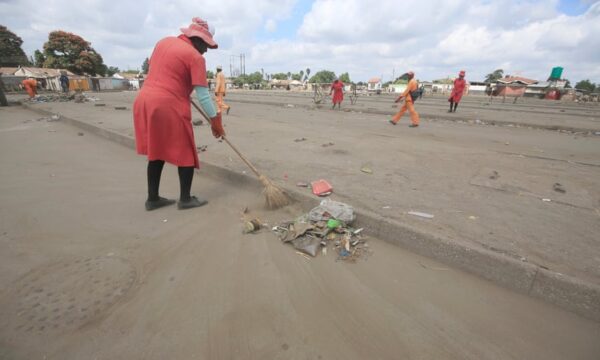PBS: Escaping Eritrea … [Read More...] about ካብ ውሽጢ ቤት ማእሰርታት ኤርትራ
‘We will starve’: Zimbabwe’s poor full of misgiving over Covid-19 lockdown
Unable to access state benefits, food and even running water as the country shuts up shop, people in Harare fear the worst
Nyasha Chingono in Harare |Fri 3 Apr 2020 |The Guardian

Nelson Mahunde, 70, trudges along the deserted streets of Harare’s central business district to collect his monthly pension.
In one hand, he clutches a pension letter; with the other, he hold on firmly to his walking stick.
The frail Mahunde has travelled from Murehwa, about 100km from Harare, to collect the meagre amount of money, equivalent to $10 (£8).
To his dismay, the bank is closed.
He pleads with the security guard to withdraw enough cash for his bus fare, but the ATM has no money. Mahunde is turned away.
The 70-year old had no idea Zimbabwe has been plunged into a 21-day national lockdown to curb the spread of Covid 19. The country has eight confirmed cases, and one death. The popular television journalist Zororo Makamba died last week.
“How can we wash our hands regularly when there is no running water?Macdonald Moyo, Harare resident
“No one in my village told me that the banks would be closed today. I don’t even know what to do. My family depends on that money for survival. If it is true that no one will be moving for 21 days, then my family will starve,” says Mahunde.
“It is going to be the longest 21 days ever. There is nothing at home,” Mahunde said.
He already has to take on work as a cobbler to pay for the daily medication he needs for hypertension. His pension doesn’t cover the cost.
“This pandemic has just come to worsen things for us here in Zimbabwe. We are already suffering, and being forced to stay indoors for that long will further depress us,” he says, walking away from the bank.
Across the street, Joyce Meki, 52, sits at her newspaper stall waiting for customers.
But there are none in sight. Most Zimbabweans have heeded government calls to stay at home.
“Food is my major problem, so that’s why I came to work. I have no choice. I thought it was better to come to work, maybe a few customers would buy newspapers. But there is no one here. I regret ever coming here today,” she says.
Meki usually earns $5 a week, but it is insufficient to meet her daily needs.
“I take care of my three grandchildren, who all look up to me. Now that they are home, they would need food all the time. It is going to be costly for me.”
While affluent Zimbabweans stocked their pantries with food last weekend in preparation for the lockdown, which began on Monday, poor people were unable to do so. With basics such as mielie-meal in short supply, many fear they may not survive.
Hilal Elver, the UN special rapporteur on the right to food, last year warned that Zimbabwe was on the verge of “manmade starvation”, with 60% of the population already facing hunger.
The World Food Programme (WFP) has warned that 7.7 million Zimbabweans – about half the population – will face food insecurity this year. The agency said it needs $111m to support people between March and August.
